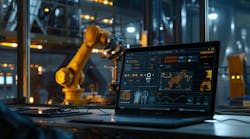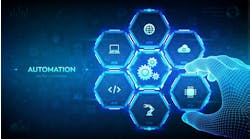As I watch my older colleagues cast off into retirement one by one, unmooring and sailing away into oblivion, without even glancing back, I sometimes wonder how we’ll replace the expertise they take with them.
The years of experience and tribal knowledge they’ve accumulated over the course of decades just floats away. Sure, many of them are replaced by algorithms and sophisticated software analytics that are much less expensive in the long run. But how do we replenish the domain expertise that Baby Boomers collected?
Where do you find individuals who understand the mechanical properties that give meaning to trending data?
Increased emphasis on STEM education means an influx of workers with a solid background in science, technology, engineering and mathematics. More schools, even down to the elementary level, are making it part of their standard curriculum. Initially the benefits of these programs were overlooked, but in 2018 we will see this curriculum sweeping across all facets of education, predicts Brandon Milligan, COO of StrataTech Education Group, which focuses on the acquisition, growth and development of specialized career education schools, particularly skilled-trade programs. STEM tracks will continue to gain popularity as parents and educators recognize opportunities in the skilled trades. StrataTech’s portfolio includes RefrigerationSchool in Phoenix, with a strong emphasis on diagnostics and maintenance, as well as TulsaWeldingSchool in Tulsa, Oklahoma, Tulsa Welding School Jacksonville in Florida, and TulsaWeldingSchool & TechnologyCenter in Houston.
Yes, these are areas that many prognosticators have deemed old school or on the verge of obsolescence because automation and robotics are poised to replace them, but rest assured this type of domain expertise will be invaluable as we hand over business and production decisions to artificial intelligence.
An investment in skilled trades is an investment in safeguarding the future of machine building and manufacturing. More hands in the plant and boots on the ground assures that ability to interpret the data that machines generate.
Lights-out manufacturing in autonomous factories might seem like the brass ring that organizers keep reaching for, but someone still needs to build, program and repair the equipment. Machinery generates petabytes of data, but, without domain expertise, that information is as meaningless as the wake of a boat slipping off into the sea.






